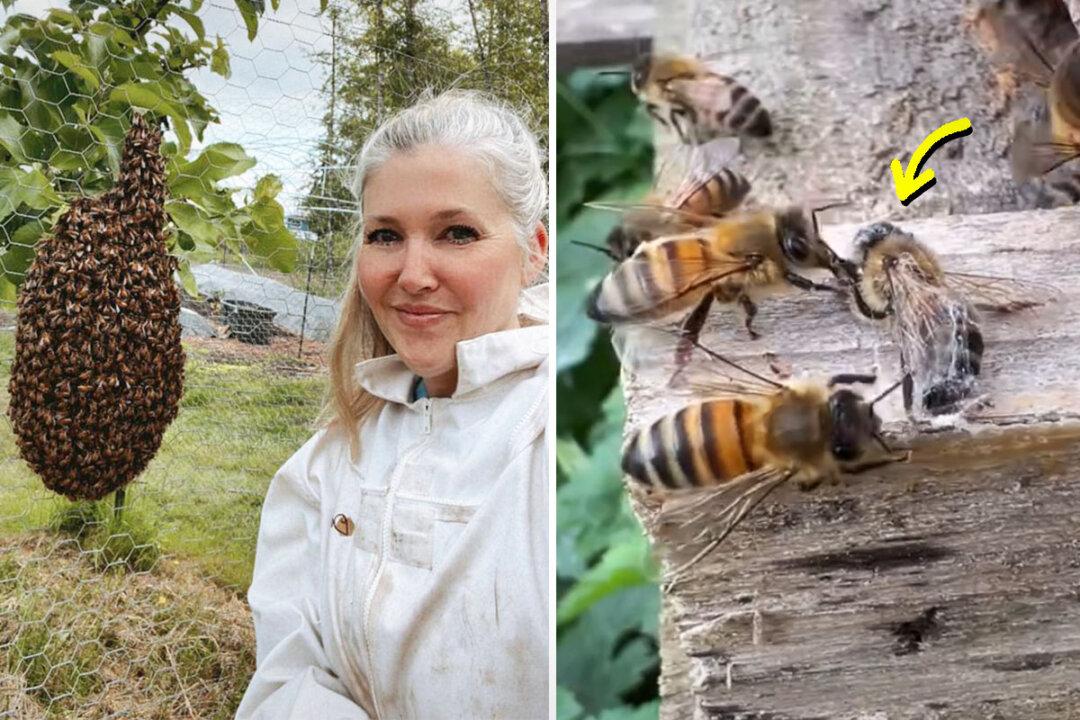On a Saturday afternoon in June, as Oregon-based bee steward Farrah King was reorganizing and tidying her workbench in the greenhouse, a distressed female bee caught her attention.
“She was buzzing really loudly and just sounded frustrated,“ Ms. King told The Epoch Times. “I immediately could see that she got tangled in an old [spider] web.”






